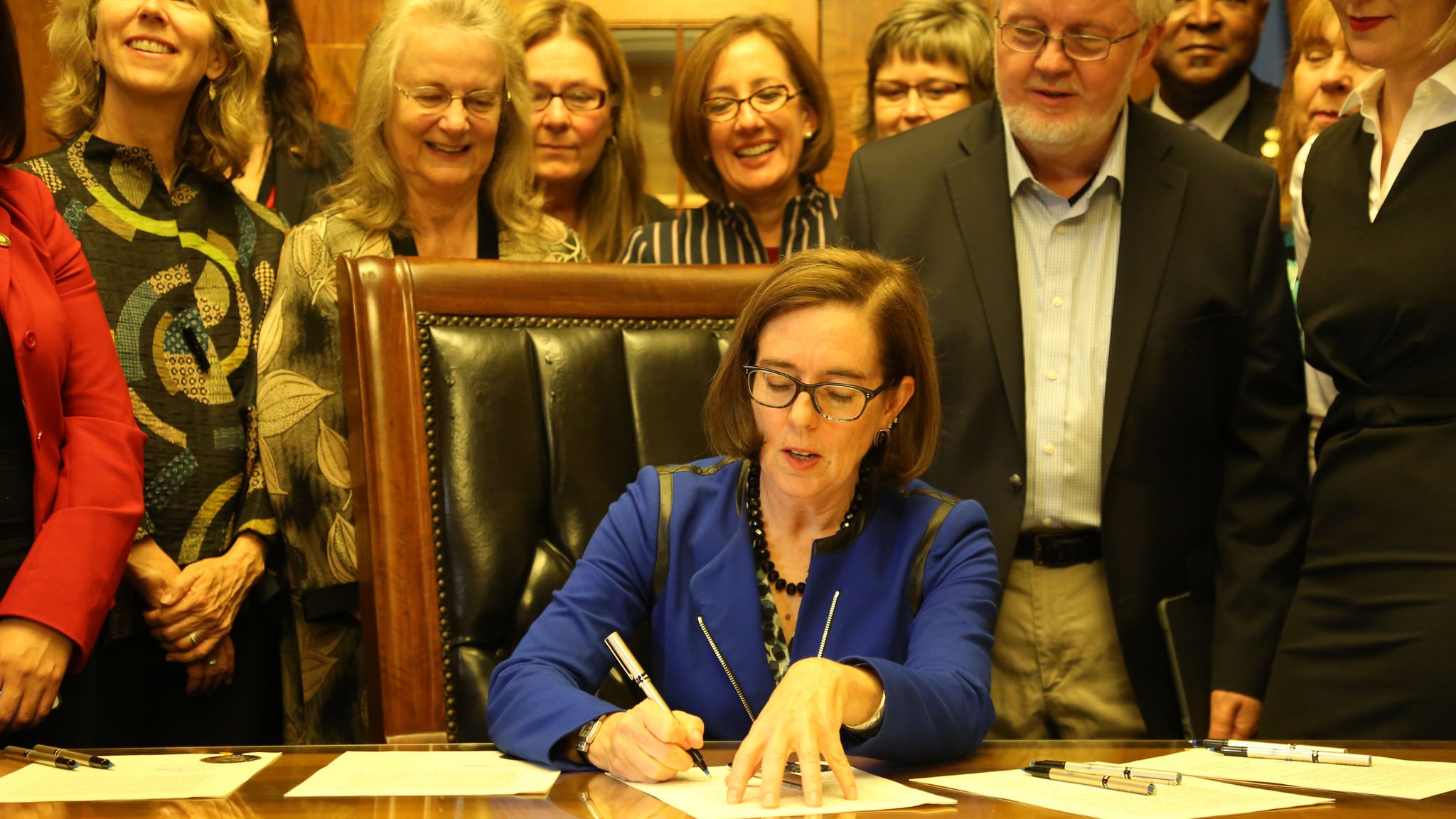The Oregon Court of Appeals ruled on Friday that the Portland law firm Davis Wright Tremaine cannot get a look until after the Nov. 6 election at the draft 2019 legislation it sought.
In a lawsuit filed in September in Marion County Circuit Court, Greg Chaimov, a DWT lawyer, explained he and his firm had routinely requested drafts of legislation state agencies submitted pre-session in order to keep clients posted on what laws might be changing. (Disclosure: DWT represents WW in certain matters; however, WW is not involved in this case.)
This year, however, the state took a different position than it had in the past, rejecting the firm's request for such information. The state said in court filings that that the draft legislation was covered by attorney-client privilege, and therefore exempt from the Oregon public records law.
Chaimov, who formerly served as the legislative counsel, the Legislature's attorney, disagreed with that assertion.
He argued through his colleague and attorney John DiLorenzo, that only the Oregon Department of Justice could serve as the state's attorney and thus the state's claim that draft legislation was attorney client privileged was incorrect.
So what's at stake?
It's hard to know because only the state and its agencies know what's in the draft bills. Those drafts could be innocuous or they could seek policy changes or new taxes that could become issues in the Nov. 6 general election race between incumbent Gov. Kate Brown, a Democrat and her Republican challenger, state Rep. Knute Buehler (R-Bend).
One example of such a possibility: an Oregon Health Authority 2019-21 budget proposal to increase cigarette taxes by $2 a pack and increase the retail cost of beer, wine and liquor by 10 percent. WW reported on that proposal last week.
A Marion County Court judge initially ruled in favor of Chaimov and DiLorenzo, ordering the state to turn over the bill drafts by Oct. 26. The state appealed and on Friday, the Court of Appeals stayed the order to disclose, which means Brown's administration can withhold the drafts until the date they proposed for disclosure, Nov. 30, three weeks after the election.
In a four-page ruling Oct. 26, the Court of Appeals acknowledged the potential electoral implications of the case.
"The court is not oblivious to the political context of this case and that a stay may work to the advantage of one party or candidate (or that denying a stay may work to the advantage of another party or candidate) in the general election that concludes in early November 2018 well before a department of this court can render a decision on the merits of the appeal," the court wrote.
DiLorenzo says he will pursue the case, nonetheless.
"I am quite disappointed in the result but am committed to seeing this battle to the end," he wrote in an Oct. 26 email. "The question of whether the attorney client privilege attaches to communications by Executive Branch agencies to the Office of Legislative Counsel is of great importance."
